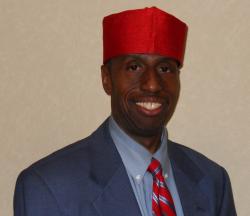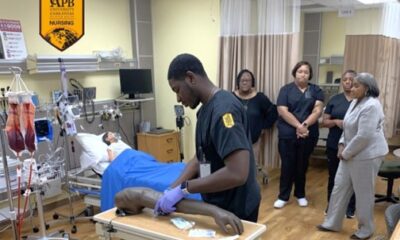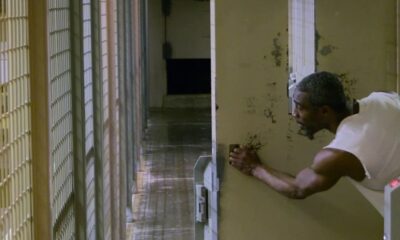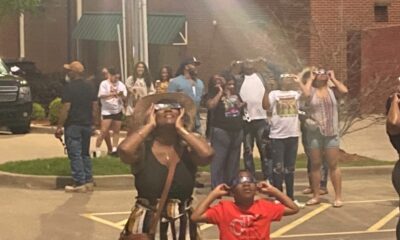Featured
White House Correspondent April Ryan and the Edmund Pettus Bridge Make the Case for Voting
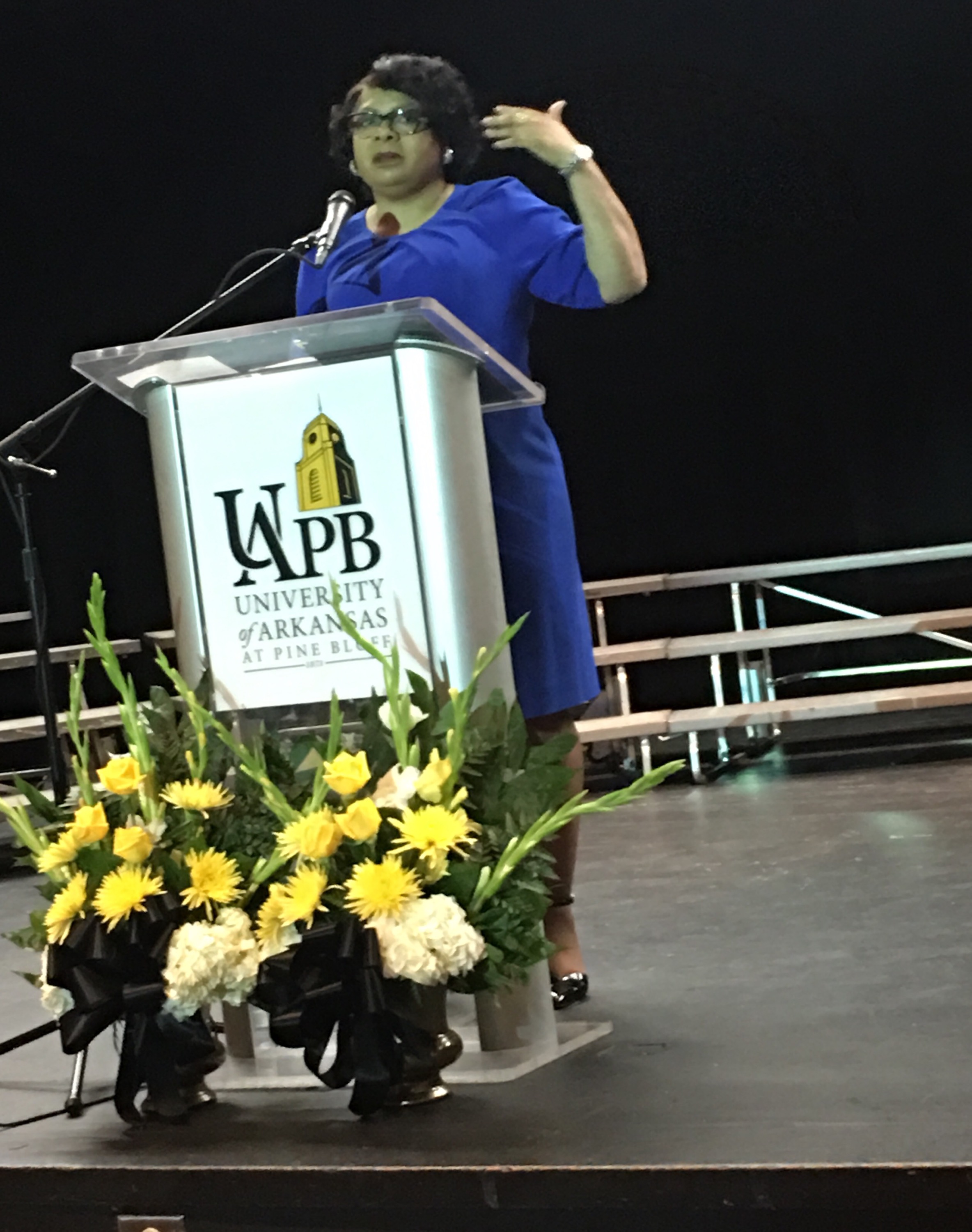
White House Correspondent April Ryan paid tribute to the power of African American women during a Women’s History Month program at the University of Arkansas at Pine Bluff.
“Women are the backbone of the movement, of any cause,” stated Ryan , who is also the mother of two daughters. “I look at women as overcomers, as people who forge a path, people who overcame oppression, suppression, and depression.”
Connecting the threads of Black History Month and Women’s History Month , the graduate of Morgan State University united the commonalities of the two struggles, citing the “dis-ease the women had in their spirit to change the condition” of Black America.
Ryan’s remarks at the University came on the heels of the 54th Bridge Crossing Jubilee which commemorates the confrontation at the Edmund Pettus Bridge, known as Bloody Sunday, a seminal event in the passage of the Voting Rights Act. It was March 7, 1965 when more than 500 African American demonstrators began a 45-mile march from Selma, Alabama to the state capitol in Montgomery to protest the suppression of their right to vote. As they crossed the Bridge, white state troopers beat and tear-gassed them. Television cameras recorded the brutal violence and there was outrage around the country.
Two days later, Rev. Martin Luther King led a second march but decided to end it in response to a federal injunction. But, on March 21st President Lyndon Johnson ordered the National Guard to protect 3,200 civil rights protesters as they successfully marched from Selma to Montgomery, setting the stage for Congress to pass the Voting Rights Act.
Among the prominent women at this year’s march were former Secretary of State, Hillary Clinton, and Susan L. Taylor, former editor-in-chief of Essence who now runs the mentoring organization she founded, National Cares Mentoring Movement .But, women and men from every walk of life attended, including Johnny Hasan, a volunteer with the Arkansas MLK Commission and Elizabeth Johnson who serves on the Commission.
“During the time these things were happening, I was a young girl,” Johnson said. “This will help me close on some issues I’ve had through the years because of what America was supposed to be and what it really was. Hopefully, now it has become better in more ways than one. These are very egregious times.”
Hasan, a historian who collects artifacts relevant to African American history, held tight to a keepsake from the 50th Bridge Jubilee.
He said, “I’ve seen it so many times on TV, just watching it, but I had never thought about actually going to the bridge and experiencing the site where this actually happened.”
The executive director of the Arkansas MLK Commission, DuShan Scarbrough, organized the group which traveled by bus to Selma.
“I am overjoyed to attend to such a monumental occasion … a festive event that pioneers such a long list of civil rights,” Scarbrough said.
Johnson plans to share her experience with teenagers and others in effort to encourage them. Her involvement is what Ryan called “saving the fruit.”
It is also what Ryan does daily from the White House as she raises questions for the American Urban Radio Networks and its millions of listeners.
“Sometimes we’re not at the table when they’re talking about us,” Ryan said. She urged the college students in the audience to vote, saying “I don’t care who you vote for…just vote.” Her words fell on receptive ears as she recalled those who shed blood pursuing the right to participate in the democratic process including the protesters decades ago on the Edmund Pettus Bridge.

-

 Black History5 months ago
Black History5 months agoThe untold story of a Black woman who founded an Alabama hospital during Jim Crow
-
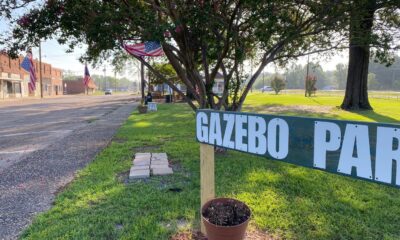
 Featured9 months ago
Featured9 months ago‘No Closure’ In Town Where Five Black Residents Were Either Murdered, Died Suspiciously Or Are Missing
-
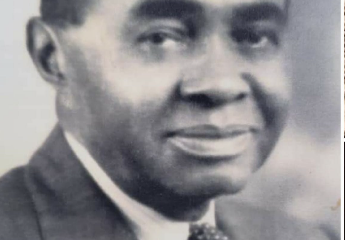
 Black History10 months ago
Black History10 months agoBlack History Lost and Found: New Research Pieces Together the Life of Prominent Texas Surgeon and Activist
-

 Featured9 months ago
Featured9 months agoFounder of “The Folding Chair” Podcast Calls Montgomery’s Brawl ‘Karma’
-
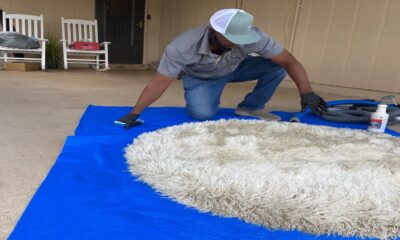
 Featured9 months ago
Featured9 months agoThousands ‘Live Their Dream’ During National Black Business Month
-

 Featured11 months ago
Featured11 months agoJuneteenth And ‘246 Years Of Free Labor’ Are Key To Conversations About Reparations

